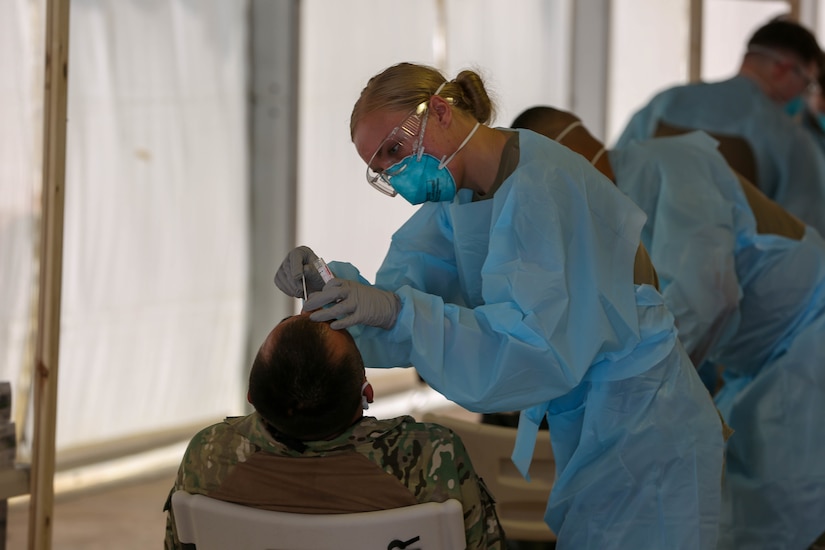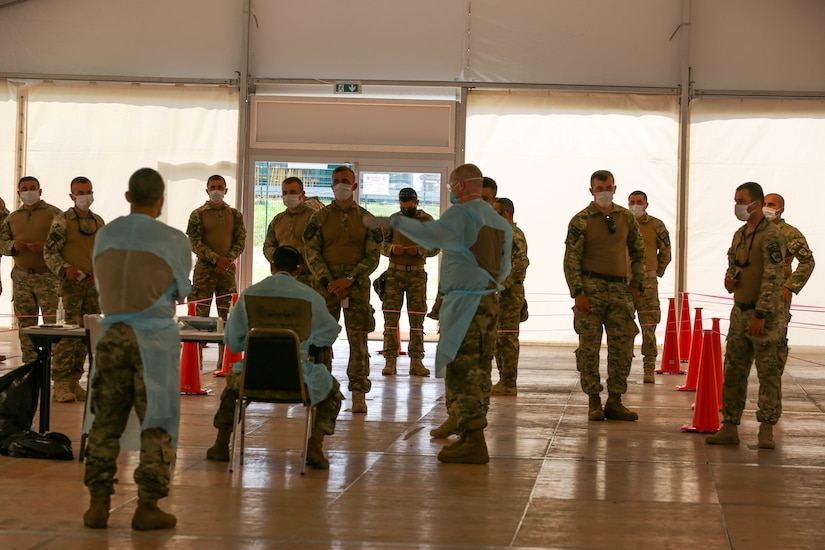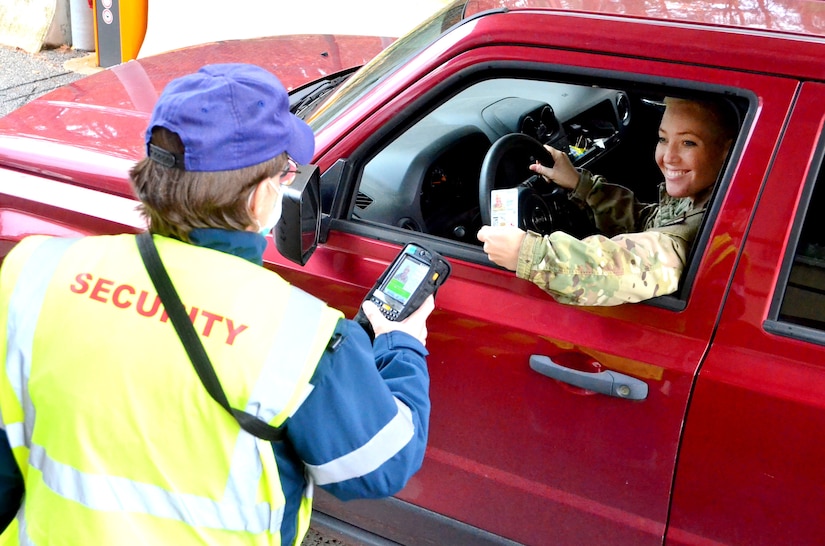Nov. 30, 2020 |
Anyone who had to quarantine for two weeks since the COVID-19 pandemic started can tell you that quarantining is not fun.
After the German government put the quarantine in place, U.S. Army Europe-Africa followed suit. In fact, USAREUR-A has kept its quarantine at 14 days, with no testing out, even after the host nation has dropped the German quarantine to 10 days with a negative test.

Those who are quarantining are not supposed to break that restriction - not for appointments, not for groceries and not because they're feeling cooped up.
"If a soldier is notified by Team Trace they have tested positive for COVID-19, they will go on quarantine for 14 days," said Army Maj. Chase Crabtree, U.S. Army Garrison Rheinland-Pfalz director of emergency services. "Unfortunately, sometimes around day 10 or 11, they might start to feel cooped up and think about getting out of the barracks or the house."
Crabtree said he completely understands the temptation to go for a walk, to the commissary and post exchange, or go for a Doner kebab or a Big Mac, but leaving quarantine would be a bad idea.
"For the overall health and safety of the community, it's imperative that if you're COVID-19 positive or you're on restriction of movement as a close contact, that you stay in quarantine," Crabtree said. "If you need assistance, you have a chain of command. You have support groups and sponsors who can go out and get groceries, or who can run a few errands for you, but you need to make the right decision and stay home or in your lodging room when you're quarantined."

When a person is put on quarantine, their information is given to the garrison directorate of emergency services for input into the installation access control system. Finding a soldier, Army civilian or family member who breaks quarantine is as simple as a common access card, or CAC.
"Anytime the Pond guards at the gates scan a CAC, it brings up a photo of the individual who belongs to that card, of course," said Kristen Luoma, USAG RP installation control officer. "It also brings up a colored band. Green means you're good to go, and red means you've been flagged for some reason."
Luoma said there's no health privacy violation for the quarantined person as the red indicator only signifies the individual is archived, or flagged, for some reason. If that happens, the gate guards call that person's chain of command and turn them over to the unit.
Louma said a person can be archived for several things. A commander can ask the directorate of emergency services to archive a soldier thought to be at risk, or someone may have reported a lost or stolen ID card. Once it's input into the system, every guard with a scanner at any U.S. military entry gate in Europe will know if an individual is archived.

"If we come across someone who is archived, we put their information in what we call a raw data file. They don't go on the daily blotter, but it is an electronic record that they broke quarantine," Crabtree said.
Crabtree said punishment for quarantine violations is up to the owning organization's chain of command and could range from a verbal reprimand to Uniformed Code of Military Justice actions.
(Keith Pannell is assigned to U.S. Army Garrison Rheinland-Pfalz)








No comments:
Post a Comment